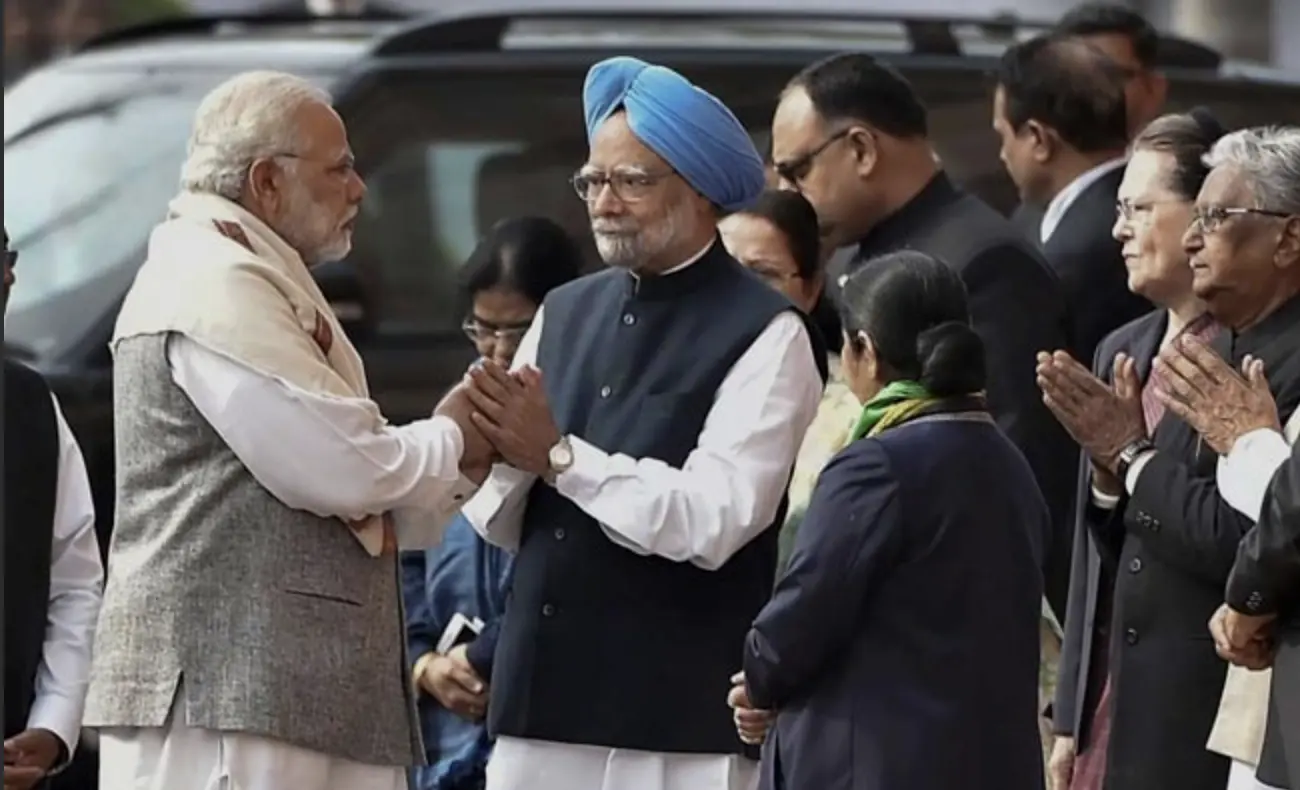India Mourns Dr. Manmohan Singh: Economist and Former PM Passes Away at 92
India mourns the loss of one of its most distinguished leaders, Dr Manmohan Singh ji. Rising from humble origins, he rose to become a respected economist.

Manmohan Singh passes away.
Dr. Manmohan Singh, the architect of India’s economic reforms and former Prime Minister, passed away on Thursday at the age of 92 due to age-related medical conditions.
The All India Institute of Medical Sciences (AIIMS) in Delhi, where he was undergoing treatment, confirmed the news in a statement, marking the end of an illustrious career in public service.
"With profound grief, we inform the demise of former Prime Minister of India, Dr Manmohan Singh, aged 92. He was being treated for age-related medical conditions and had a sudden loss of consciousness at home on 26 December 2024. Resuscitative measures were started immediately at home. He was brought to the medical emergency at AIIMS, New Delhi at 8.06 pm. Despite all efforts, he could not be revived and was declared dead at 9.51 pm" the statement read.
Born on September 26, 1932, in Gah, a village now in Pakistan, Dr. Singh overcame humble beginnings to become one of India’s most distinguished leaders.
He completed his Economics Tripos from the University of Cambridge and held various academic and professional roles before entering politics. His tenure as Finance Minister from 1991 to 1996 under Prime Minister P.V. Narasimha Rao was a turning point in India’s economic history.
As Finance Minister, Dr. Singh ushered in groundbreaking economic reforms that liberalized India’s economy. At a time when the nation faced a balance of payments crisis, he introduced measures to open up markets, reduce fiscal deficits, and attract foreign investments.
These reforms, which included dismantling the License Raj, deregulating industries, and initiating trade liberalization, set the foundation for India’s rapid economic growth in subsequent decades. His efforts earned him widespread acclaim as a visionary economist and a reformist leader.
In 2004, Dr. Singh became India’s 13th Prime Minister, leading the country for two consecutive terms until 2014. As the head of the United Progressive Alliance (UPA) government, he presided over a period of economic expansion, social welfare initiatives, and foreign policy advancements. Under his leadership, India’s GDP growth reached unprecedented levels, and the nation emerged as a global economic powerhouse.
Dr. Singh’s tenure was marked by significant policy achievements, including the introduction of the Mahatma Gandhi National Rural Employment Guarantee Act (MGNREGA), which provided a safety net for millions of rural households.
He also championed the Right to Information Act, empowering citizens to hold government institutions accountable. On the global stage, Dr. Singh played a key role in strengthening India’s relations with major powers and securing the historic Indo-U.S. civilian nuclear agreement.
Despite his quiet demeanor, Dr. Singh was widely respected for his integrity, humility, and intellectual acumen. His critics often pointed to challenges during his tenure, including corruption scandals and policy paralysis in his second term. However, his legacy as a reformist leader and a dedicated public servant remains intact.
Tributes have poured in from across the political spectrum and the international community, with leaders remembering him as a statesman who combined economic foresight with a commitment to social justice.
